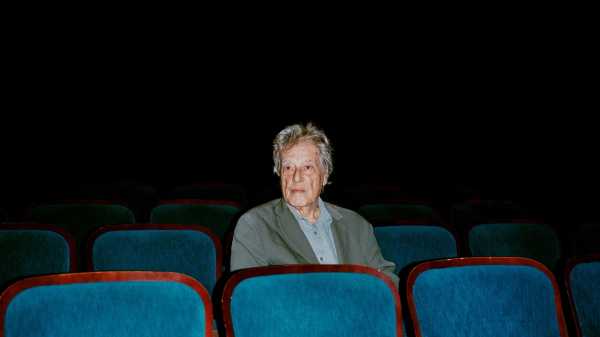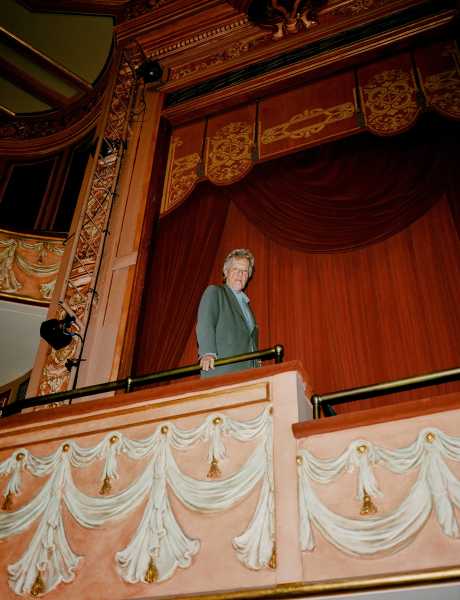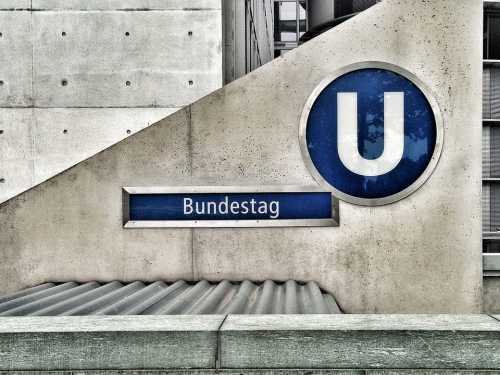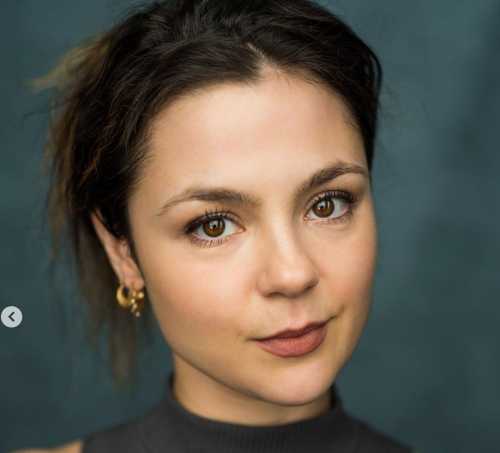
“Rosencrantz and Guildenstern Are Dead,” the play that made Tom Stoppard’s name, in 1966, begins with a perfect stage image: Ros and Guil, those identikit functionaries borrowed from “Hamlet,” are passing the time by flipping coins. Their fate having been scripted by Shakespeare, the outcome is never in doubt: it’s heads every time. “Getting a bit of a bore, isn’t it,” Ros says, with an embarrassed laugh.
More than fifty years later, Stoppard, a master of meta-theatrics, could be forgiven for feeling a touch of the Rosencrantzes. His newest play, “Leopoldstadt,” opened in London in January, 2020, to reverential reviews; there were rumors that it would rapidly move to Broadway. Then, of course, came the pandemic, and the closure of theatres everywhere. When the show reopened, in a COVID-spooked London, last year, it was onstage for just twelve more weeks. Plans for a North American première, in Toronto, at the beginning of this year, were full steam ahead until, abruptly, they weren’t: COVID, again. Tails, tails, tails.
At long last, “Leopoldstadt” is making its entrance on Broadway. American audiences who have waited a long time for their chance to see the latest Stoppard might be surprised. After the exuberant, cartwheeling theatrics of his most famous plays—not just “Rosencrantz and Guildenstern” but “Jumpers,” “Travesties,” “Arcadia,” and more—the tone of Stoppard’s work has darkened and deepened throughout the years, and become more intimately personal. This happened gradually: his 2006 play “Rock ’n’ Roll,” which opened at the Royal Court, in London, was a rueful take on the collapse of Communism in what was then Czechoslovakia, the country that Stoppard’s family fled when he was a child; its central character might have been Stoppard himself, had he moved back instead of settling in England. The play that followed, “The Hard Problem,” from 2015, was a disquisition-heavy examination of consciousness, faith, and the mind-body divide, featuring a researcher attempting to reconcile her belief in God with her interest in brain science. Was the playwright reckoning with his own mortality?
“Leopoldstadt” is painted in even darker tones, and seems more intimate still. Swooping across half a century, from 1899 to 1955, it chronicles multiple generations of a wealthy Jewish family, the Merzes, who live in the titular Vienna district. When the Nazis arrive, the well-networked and proudly assimilated Merzes seem to believe that history will not repeat itself, that they’ll somehow get out. Of course, it does and they don’t. A tide of sorrow and loss floods the play.
Though the Merzes are Viennese, not Czech, Stoppard has acknowledged the autobiographical nature of the play’s source material: all four of his grandparents and three of his mother’s sisters died in the Holocaust, a topic that his mother spent a lifetime trying not to talk about. Her son didn’t discover the full truth about his past until the early nineties, when he was a middle-aged man.
Is “Leopoldstadt” a form of recompense for not having looked this history fully in the face until now? It’s tempting to think so. There’s also a sense of having sidestepped calamity without realizing, or wanting to realize, how close it came. (In our interview, Stoppard quibbled about the appropriateness of the term “survivor’s guilt,” but admitted that the play’s sorrows are very much his own.) As his first play to focus so closely on Jewish experience, “Leopoldstadt” does feel like a reckoning, one he has been contemplating in some form for nearly thirty years. When it first opened, Stoppard hinted that it might be his last play; when we spoke, he seemed less certain. As before, time will presumably tell.
We first spoke in January, via Zoom, while Stoppard was safely holed up in his grand Dorset home. We talked again in September, as “Leopoldstadt” was preparing to open in New York. These conversations have been condensed and edited.
Do you still get those butterflies when you’re waiting for an audience to come in? Do you still think about what they’re going to think, how they’re going to respond?
The answer is that I stopped being nervous a few plays ago, but, with this one, I feel a few butterflies. When I was much younger and newer, I was much more nervous than I am nowadays. I probably felt I had more to prove.
But I’m glad I’m not a director. I like being behind the director’s shoulder, but I don’t want to be in charge. I really would be frightened.
“Leopoldstadt” is all about time—it’s this journey through nearly sixty years of history, from 1899 to 1955, the story of one Jewish family over several generations, as it is slowly sucked into the horrors of the Holocaust. What made you want to write on that kind of scale?
I knew I wanted to write a version of my family background. And, more particularly, I wanted to write about coming to England at the age of eight. And I thought, when I set off with the play, that the second half would be set in England and would take me through the first twenty years of my life. It didn’t work out like that. Plays never do; they find their own architecture. And their own story, even.
I ended up writing about myself in 1955, but that young man’s family history is only in the broadest sense like mine. As I found, as soon as the play was out there, there’s enough shared experience to go around—tens of thousands, hundreds of thousands of families, who all can say, “You’re writing about my family.” They know I’m not, and I know that I’m not, but it’s also true that, yes, I’m writing about their families, too.
“Leopoldstadt” seems braided into the fabric of your own life, and your family history—it’s hard to disentangle where the play begins and real life ends.
If I could remember how I got into “Leopoldstadt,” I’d do it again. I wrote a play called “Rock ’n’ Roll,” which was about a kind of alternative me going back to, I guess, the nineteen-eighties. But I wasn’t thinking autobiographically—I was thinking of what my life might have been if I had gone back to Czechoslovakia. In other words, I never got near thinking about my Jewish heritage. It was about ideology.
When Communism fell, in Czechoslovakia, I began to find out more about one or two people who are related to me, and in some cases were still living there. I wouldn’t have written about my heritage—that’s the word for it nowadays—while my mother was alive, because she’d always avoided getting into it herself. When she died, I went to my birthplace, and I didn’t remember anything. I was around eighteen months old when I left Zlín, in Czechoslovakia. I didn’t go back thinking, You know, here’s something I can use.
It’s such an immensely emotional play; it has this real build and trajectory. Is it naïve to ask whether it was emotional to write? The last scene, in particular.
Some of it was, but I’ve always relied on my reading when writing a play. I read a good bit of stuff about Vienna at that time, about the whole culture of Vienna, from the turn of the century right to the Nazis showing up—appalling scenes, of course. How else is one supposed to get the straw without which you can’t make the bricks? As often is the case with me, the books I needed I’d had on my bookshelves for years. I would see a book on the shelf and think, That’s why I bought this book twenty years earlier.
You had this very English upbringing—and this hidden history, which you discovered only in your fifties, when, I think, a cousin of yours got in touch and asked, Do you know what happened to your family? And she said, Well, you’re Jewish, four of your grandparents died in the Holocaust, several of your aunts. There was this whole other side to your family history that you hadn’t really known about. Is that true?
It does sound pretty awful—and weird as well, but I did not know it. I didn’t know my mother’s sisters existed. I didn’t know what happened to my four grandparents. But, at the same time, I could have found out if I’d persisted. I wasn’t a complete idiot. I knew we left Czechoslovakia because of the Jewish problem or the Nazi problem, depending on where you are. And I’d talked to my mother about that very occasionally. But, like my mother, I was just facing forward and getting on with life. When you’re eight, nine, ten, you take what comes.
Was it also that your mother really didn’t want to explore it?
No, she really did not. She married Major Stoppard, bless her. He brought us to England. She didn’t want to look back, and she didn’t; she never really talked much about the past. Much later on, I asked her to write down everything she could remember. Some of it was new to me, but it would be misleading to see me as somebody who blithely and innocently, at the age of fortysomething, thought, Oh, my goodness, I had no idea I was a member of a Jewish family. Of course I knew, but I didn’t know who they were. And I didn’t feel I had to find out in order to live my own life. But that wasn’t really true.
When you were writing “Leopoldstadt,” are there things you wish you could have asked her about it? Revisiting that history, are there questions that have come up for you?
No, she wouldn’t have much liked me writing the play at all, I don’t think. Perhaps, by that time, it wouldn’t have mattered. I mean, she died in the nineties, when she was in her eighties. Up to that time, and especially earlier, she really wouldn’t have liked me to write about myself as somebody who was actually Czech and had relatives living in Communist Czechoslovakia.
She just didn’t want you to be—
She was very scared of Communists—she’d been scooped out of the way of Hitler and then out of the way of the Japanese. If she hadn’t married a British Army officer, we might have gone back home, which wouldn’t have been so great. Except I would have been Václav Havel, which would be quite nice. I’d like to be President of Czechoslovakia. I think I’ve left that one a bit late.
There’s still time, Tom.
Oh, I’m working on it. [Laughs.]

“I’ve had this feeling, sometimes, of great good fortune, that I’ve lived at a time when something was coming to an end, something that I would have hated to have missed,” Stoppard says. “I felt so lucky that I’ve been part of the previous era.”
You’ve said your original intention was to write yourself into the play, and it sounds like you kind of wrote yourself out of the play. There is a character, whom you call Leo—he’s an English writer, he writes these funny books, he himself is a refugee, he doesn’t know anything about his history, and his Jewish relatives explain it to him.
Yes, it’s brazen self-pillage. There’s an element of confessional about it. He speaks for me and he ends up in tears, with good reason to be in tears. I don’t want to be mawkish, but I think I can say that they’re my tears.
At one point, Leo’s relatives are telling him about what happened during the Second World War, and you have the stage direction “Leo doesn’t understand.” It’s like he just can’t get it. This is someone else’s history.
He didn’t really understand the depth of what had happened, I suppose.
The play ends with a roll call of the dead. Do you feel survivor’s guilt? Is there an element of that?
I don’t think that’s quite the word for what I felt. I was a baby and then a toddler and a young child; it was all happening to me and around me. I understand the term, of course I do, but it seems to me that the phrase isn’t accurate. There’s something true about what it refers to, but I don’t see it as guilt. So the answer is no, I don’t feel guilt. I think of life as something that is—not destined, I wouldn’t say destined—you make your life up as you go along. And, up to a certain age, my life was made up for me.
One huge event that’s occurred since the play originally opened in London is Russia’s invasion of Ukraine. For obvious enough reasons, a lot of people have been thinking about the Second World War. It’s an area of the world you know well. Were you as shocked as everyone else when Putin invaded?
Utterly, utterly. I was making inquiries among people who would know what to expect, and I had proved to my own satisfaction that Putin had nothing to gain by invading: he’d already got what he wanted. I was completely wrong. But I think that’s what happens a lot: history comes at you sideways. The fact is, there is nothing happening anywhere that is as unlikely as the fall of Communism looked in 1985, ’86, ’87—there was no bet you could make on the end of the Soviet Empire. And, if that can happen, anything can happen.
There’s a line in the play—I don’t mind quoting it, because there’s no other way to put it. Leo says, “It can’t happen again.” And you look at Ukraine now and you think, Well, it can happen again. There is nothing that is too implausible to occur.
As you say, the play makes that point: the family you write about are not expecting the knock at the door. And perhaps none of us is, until it arrives.
Some people are very clear-eyed. Others, like myself, spend most of their time in denial. Anybody my age has lived through, let’s say, the Cuban missile crisis—I was twenty-five or something then. The thing is, I don’t really remember it because I came to the conclusion, retroactively, that I just refused to contemplate what might happen.
You’ve said more than once that you couldn’t imagine writing a play without jokes. I’m not saying there are no jokes in this one, but there are very few, and what few there are are very bleak. (I love the line “I’m three-quarters Jewish. But you’re the whole catastrophe.”) Is it simply that this isn’t a subject that can be joked about? Or has something shifted in your sense of your writing?
There’s a misperception here, for which I feel I have myself to blame, because I tend to talk about it the way you’re talking about it—using the word “jokes,” for example. It’s true that I have a bias toward comedy, but that is not quite the same thing as having a bias toward making jokes. What you’re asking about is certainly not about jokes—it’s not even about comedy; it’s really about trying to make conversation onstage, trying to make your dialogue have a kind of supernatural spring to it. Audiences quite often laugh at things just for the way they’re expressed, but they’re not being told a joke as such. You’re just trying to keep the play alive. It’s to do with the way the energy is deployed, the kind of spaces between words and between sentences. A play is always such a physical thing. There are plays that might consist of two or three monologues, and they work fine as dramatic monologues. I sometimes think I should try to see if I can make that work for myself, but, for one reason or another, I get drawn into a different kind of play.
In the past, you’ve talked about your reluctance to call yourself a Jewish playwright. What do you feel about it now?
I don’t know what that phrase is supposed to mean. Howard Jacobson, whom I admire, is a Jewish novelist, perhaps. I don’t know him really, but he is a Jewish novelist, maybe, and he thinks of himself as such and he writes about Jews and Jewish things. I don’t. All my admirations are, as it were, English literature from whatever period, from whatever Anglophone culture; that’s what I fell in love with. On occasion, I might be asked to sign something as a Jewish playwright, and I never wanted to do that. I thought, Well, actually, that’s not how I feel about myself. I just think I’m an English playwright of Jewish heritage. I’m perfectly happy to have a Jewish heritage. But the phrase seems to mean something else to me.
I first saw “Leopoldstadt” before the pandemic, and recently rewatched it. I was struck, the second time, that, really, it’s a play about apocalypse—the tearing apart of a particular part of Europe, with a Jewish family at the heart of that tear. And I was thinking about the ways in which, these days, we talk about the end of everything. Trump is the end of everything; climate change; the pandemic—we seem to be in a kind of vortex of apocalyptic views of the world. Does it feel like end-times to you, or do you take a more cyclical view of history?
I think you put your finger on something that is huge, something I’m very self-conscious about. Perhaps it’s an egocentric way of thinking, but I’ve always had the thought that things are ending, strangely enough, with my own life as it comes to a concluding curve. It’s not only on the scale of apocalypse—I’ve had this feeling, sometimes, of great good fortune, that I’ve lived at a time when something was coming to an end, something that I would have hated to have missed. I felt so lucky that I’ve been part of the previous era.
We got through Stalin. We got through this and that, and we’re still here. I’d like to believe for my mental health that it’s cyclical—because, I think, if you truly confront the idea that the planet itself is in existential danger, which it is, you’re really left with the sense that the ending is about something infinitely greater than the other little epochs and historic cycles. If I let myself worry about the state of the world, then the worry is as never before.
Freedom of speech has been a cause of yours, going back to the seventies, in particular, and your work with Václav Havel, and, recently, in Belarus. There’s been a lot of discussion around freedom of speech lately, and the dread phrase “cancel culture.” Do you think freedom of speech is under threat because of the anxiety that people have discussing certain topics or addressing certain things?
I think this is a terrifying seismic shift. There’s just been this foundational shift in some essential value, some attitude toward the individual autonomous freedom to express a thought. Just to put this within some kind of parameter, obviously I’m talking about free speech within the law and not talking about free speech outside the law—the law of the land is bedrock. And part of the reason it’s bedrock is that it enables free speech, and a lot of speech that is being cancelled, and indeed expressed, does not lie outside the law. And that’s what I find so deeply disturbing.
Do you have any sympathy with people who say, “Well, freedom of speech is all very well, but, for much of human history, only a certain group of people have been able to speak, and it’s about allowing the voices of everyone to be heard.”
In a day-to-day way, in practice, it differs—different parts of society have different access to getting their word out and getting it heard. But it doesn’t affect the core necessity. It’s like saying, “Everybody is free to have lunch at the Ritz, but who can actually afford it?” But that’s not the point. The point is what actually underlies the idea. Things which I felt were important fifty years ago, sixty years ago, are as important now as I thought then, and have become endangered—and, in that sense, more important.
You’ve written a number of plays which are large in scope—they cover these big stretches of time. “The Coast of Utopia,” from 2002, is a trilogy about Russian history. “Rock ’n’ Roll” told stories of Czechoslovakia from the Prague Spring, of 1968, to the implosion of Communism. Now “Leopoldstadt,” which has this multi-decade sweep. In a way, I’m surprised that you haven’t written more long-form TV drama over the years. You haven’t been tempted?
Not exactly tempted, no. The theatre writer is in a very privileged position. He really is in charge of his own destiny as a writer. I love what you call long-form TV dramas; there are several I’ve enjoyed enormously. But I’ve only tried to write for television once in the last decades, a five-hour television episodic [version of “Parade’s End,” by Ford Madox Ford]. I loved doing it, but it was a terrible use of one’s time, in a sense—it went on for a long time afterward, and you’re kind of negotiating for what you’ve written most of the time, you’re negotiating to keep it the way you want it to be.
So, no—I was sort of knocked sideways by the idea of live British drama in the nineteen-fifties, when I was in my twenties, and nothing has ever replaced the way it took command of my imagination, of my impulses to write something of my own.
In spite of people trying to close down the whole idea of theatre, new writers have been writing their plays every year that I’ve been writing mine. There’ve been generation after generation of young writers. And, yeah, they also write for movies and TV, but what they apparently really, really want is to have their work rehearsed and performed on the stage, however modestly, in front of a live audience.
Is it the liveness of the art form that’s the attraction for you?
The other thing about new theatre is that it’s not only live: it’s the first time anybody’s ever heard these words rehearsed and performed—the very, very first time. That’s really exciting. You don’t know what you might get.
Has writing got any easier for you over the years? I suspect the answer is no—that you still find it hard to find a subject, and find the play.
“Easier” is the wrong word, but it’s never stopped being enjoyable. Getting to the point of having something to write about—I’ve always had more difficulty with that. I’ve seldom had an idea for a play before the last play is on. In other words, the play goes on and the tank is empty.
You and I had a conversation a few years ago now, when there was a production of one of your first plays, “Rosencrantz and Guildenstern,” at the Old Vic, in London. What was it like reëncountering your younger self after all that time? Did you get on with him?
Do you find that middle-aged writers—middle-aged and beyond—are they pleased as punch about their first plays, or are they vaguely embarrassed by it? I think most of them are vaguely embarrassed by it. The Old Vic production of “Rosencrantz” was a very nice production. I don’t really want to say negative things about my life’s blood, but of course my plays have a few things in them which I would like to take back.
Am I allowed to ask for a list?
I might perhaps make a short play of all the things I wish I hadn’t written and send them to you.
You made the very unwise statement when someone was interviewing you about “Leopoldstadt” that it could be your last play. It made a lot of headlines. And then you said, Actually, well, maybe it isn’t my last play—that’s just how I was feeling at the time, I’m not sure. I guess the question is: how are you feeling now? Are you trying to write another?
I am. I have family to love and be loved by, so it seems not the most tactful thing to say, but in a way it is one’s work which makes one’s life purposive. I don’t get enough energy out of being a father and a grandfather. I am a writer; I’m lucky to be a writer; I don’t want to stop being a writer. And when I finished “Leopoldstadt” I was really glad that there was a possibility that if I did not write another play—I was really glad about the fact that I’d finished on a big thing. It struck me as a good idea to retire at that point, so I would not end up, in my twilight years, writing miniatures. And I might not yet have escaped that fate, because I’d rather write in miniature than nothing.
Without going into what the new play might be about, because I don’t know, there’s a play I wrote a long time ago about a moral philosopher, and moral realism, called “Jumpers.” I wrote it as a comedy, did it fast. I’d like to write—not that play again, but I’d like to write about that again, in a different way. That’s the only idea at the moment. I don’t have the energy I used to have, so it’s only one writing shift a day, and when there are rehearsals there are no writing shifts at all. I’m very good at not writing.
So if “Leopoldstadt” did turn out to be your last play, you’re O.K. with that? It’s how you’d like to be remembered?
If my last direct experience of writing plays would turn out to be sitting in the Wyndham’s Theatre, in London, and then the Longacre Theatre, in New York City—sitting in those houses which have been there a long time, with all kinds of work on their boards—watching and listening to “Leopoldstadt,” that will be a fortunate destiny. I would consider myself blessed. ♦
Sourse: newyorker.com






